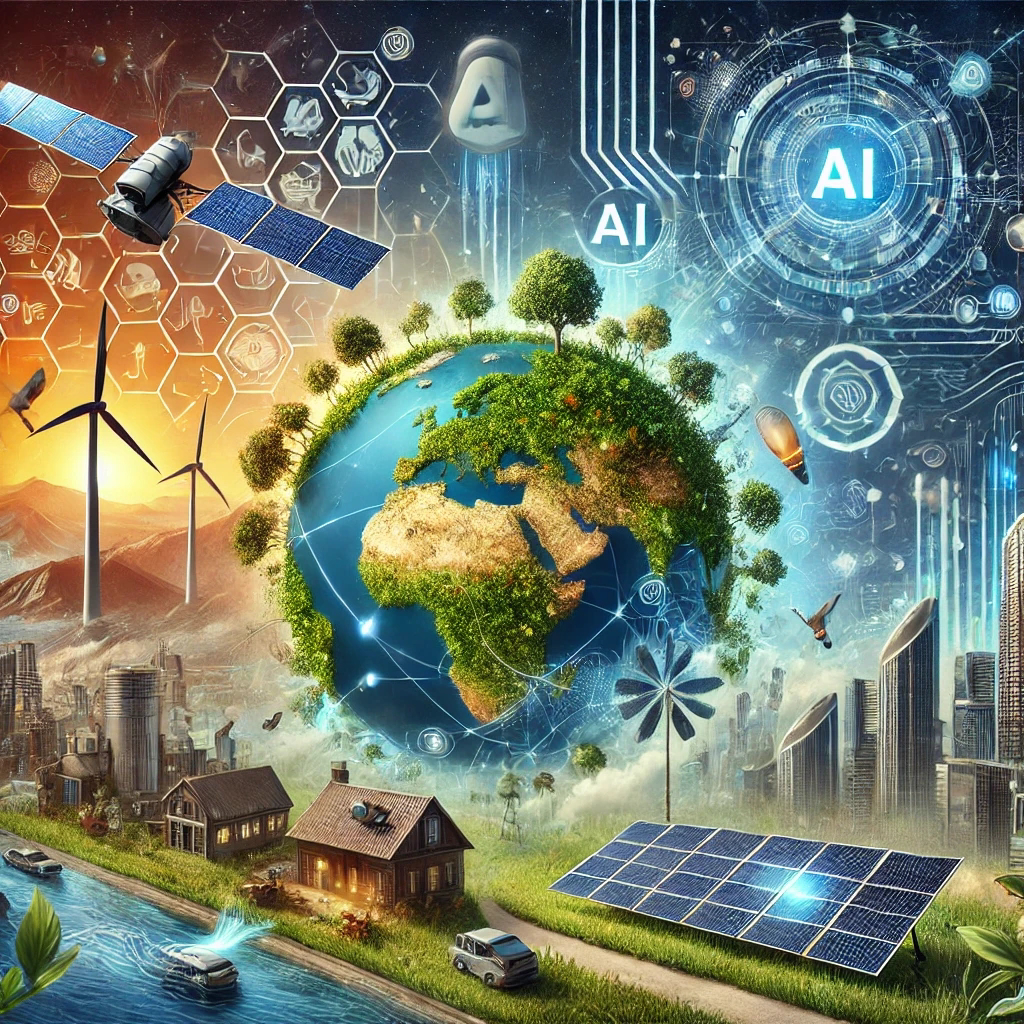How AI is Tackling Global Issues Like Climate Change
Introduction
Climate change is one of the most pressing challenges humanity faces today. As its impacts grow more severe, innovative solutions are essential. Artificial Intelligence (AI) is emerging as a powerful tool in combating climate change, offering insights and solutions that were previously unimaginable. From predicting extreme weather events to optimizing renewable energy, AI is reshaping how we approach global sustainability.
1. Predicting and Managing Natural Disasters
AI-powered systems are helping scientists and governments predict natural disasters more accurately.
Early Warning Systems: Machine learning algorithms analyze weather patterns to provide early warnings for hurricanes, floods, and wildfires.
Disaster Management: AI helps optimize evacuation plans and resource allocation during emergencies, minimizing casualties and damage.
Example:
Google's AI initiative, Flood Forecasting, uses deep learning to predict floods, providing life-saving alerts to vulnerable communities.
2. Optimizing Renewable Energy Systems
Renewable energy is critical in reducing carbon emissions, and AI plays a vital role in its efficiency:
Solar and Wind Energy Optimization: AI models predict energy production based on weather patterns, ensuring better integration into power grids.
Smart Grids: AI-powered smart grids optimize energy distribution, reducing wastage and improving reliability.
Example:
IBM’s Watson uses AI to forecast energy demand and supply, enhancing the efficiency of renewable energy sources.
3. Monitoring Deforestation and Biodiversity
AI tools are helping in the fight against deforestation and the preservation of biodiversity:
Satellite Imagery Analysis: AI analyzes satellite images to detect illegal logging and land use changes in real-time.
Species Tracking: AI-powered drones monitor endangered species, ensuring conservation efforts are targeted and effective.
Example:
Global Forest Watch uses AI to track deforestation and alert authorities, protecting critical ecosystems.
4. Carbon Footprint Reduction
AI assists individuals and businesses in reducing their carbon footprints:
Eco-Friendly Practices: AI suggests sustainable practices for industries, such as reducing energy consumption and optimizing supply chains.
Carbon Capture Technology: AI helps enhance the efficiency of carbon capture and storage (CCS) technologies.
Example:
Microsoft’s AI for Earth initiative supports projects that reduce carbon emissions using AI solutions.
5. Advancing Climate Research
AI accelerates climate research by analyzing massive datasets:
Climate Modeling: AI-driven simulations help scientists predict long-term climate trends and evaluate the impact of policy changes.
Data Insights: AI processes complex climate data faster than traditional methods, enabling more accurate studies.
Example:
DeepMind’s AI models assist in climate science by predicting changes in weather patterns and ocean temperatures.
6. Promoting Sustainable Cities
Urban areas contribute significantly to carbon emissions, but AI is making cities smarter and greener:
Traffic Management: AI reduces traffic congestion, cutting emissions from vehicles.
Waste Management: AI systems optimize waste collection and recycling processes, reducing landfill use.
Example:
The city of Barcelona uses AI for smart waste management and energy-efficient public transportation systems.
7. Challenges and Ethical Considerations
While AI holds immense potential, it’s not without challenges:
Energy Consumption: Training AI models requires significant computational power, which can contribute to emissions.
Data Accessibility: Many AI solutions rely on large datasets, which are not always available in developing nations.
Ethical AI development is crucial to ensure that solutions are sustainable and inclusive.
Conclusion
AI is proving to be a game-changer in the fight against climate change. Its ability to process vast amounts of data, optimize systems, and predict trends is helping governments, businesses, and individuals take meaningful action. While challenges remain, the potential benefits far outweigh the risks. By leveraging AI responsibly, we can make significant strides toward a sustainable and resilient future.
"© 2024 Vignesh's World View. All Rights Reserved. Unauthorized use and/or duplication of this material without express and written permission from this blog’s author and/or owner is strictly prohibited. Excerpts and links may be used, provided that full and clear credit is given to Vignesh's World View with appropriate and specific direction to the original content."




Comments
Post a Comment